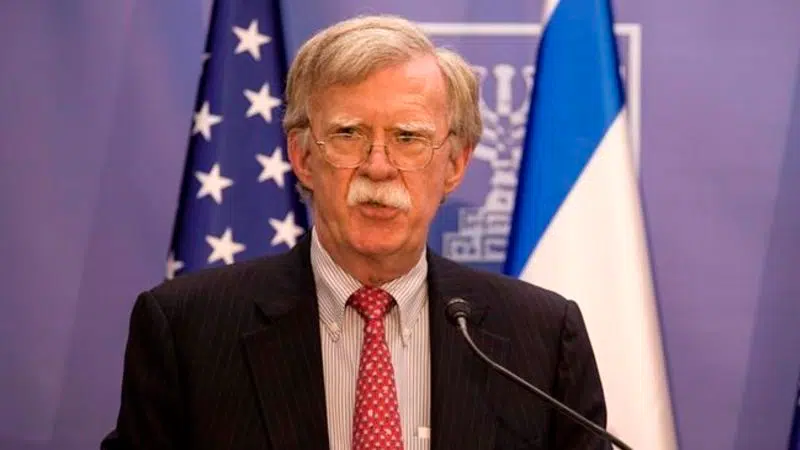
Bolton warns Iran not to mistake US ‘prudence’ for weakness
JERUSALEM — U.S. National Security Adviser John Bolton said Sunday that Iran should not “mistake U.S. prudence and discretion for weakness,” after the U.S. abruptly called off military strikes against Iran in response to the shooting down of an unmanned American surveillance drone.
Bolton’s tough message seemed to be aimed not only at Tehran, but also at reassuring key U.S. allies that the White House remains committed to maintaining pressure on Iran. Israel, along with Arab countries in the Gulf, considers Iran to be their greatest threat, and Trump’s last-minute about face appears to have raised questions about U.S. willingness to use force against the Islamic Republic.
The downing of the aircraft on Thursday marked a new high in the rising tensions between the United States and Iran in the Persian Gulf. The Trump administration has vowed to combine a “maximum pressure” campaign of economic sanctions with a buildup of American forces in the region, following the U.S. withdrawal from the 2015 nuclear deal between Iran and world powers.
President Donald Trump says he backed away from the planned strikes after learning 150 people would be killed. But Bolton, a longtime Iran hawk, emphasized that the U.S. reserved the right to attack at a later point. He also said a new set of sanctions on Iran are expected to be announced Monday.


